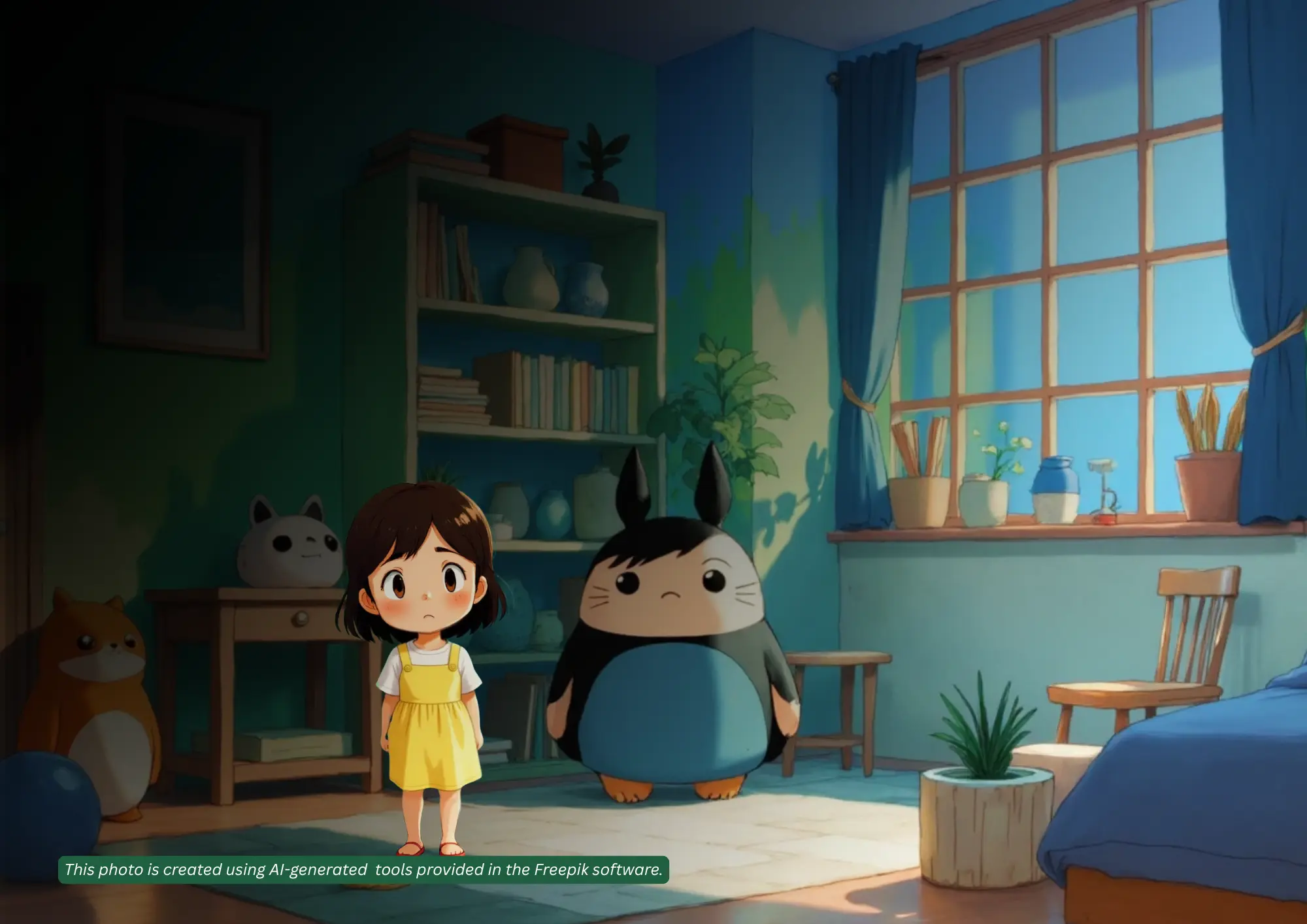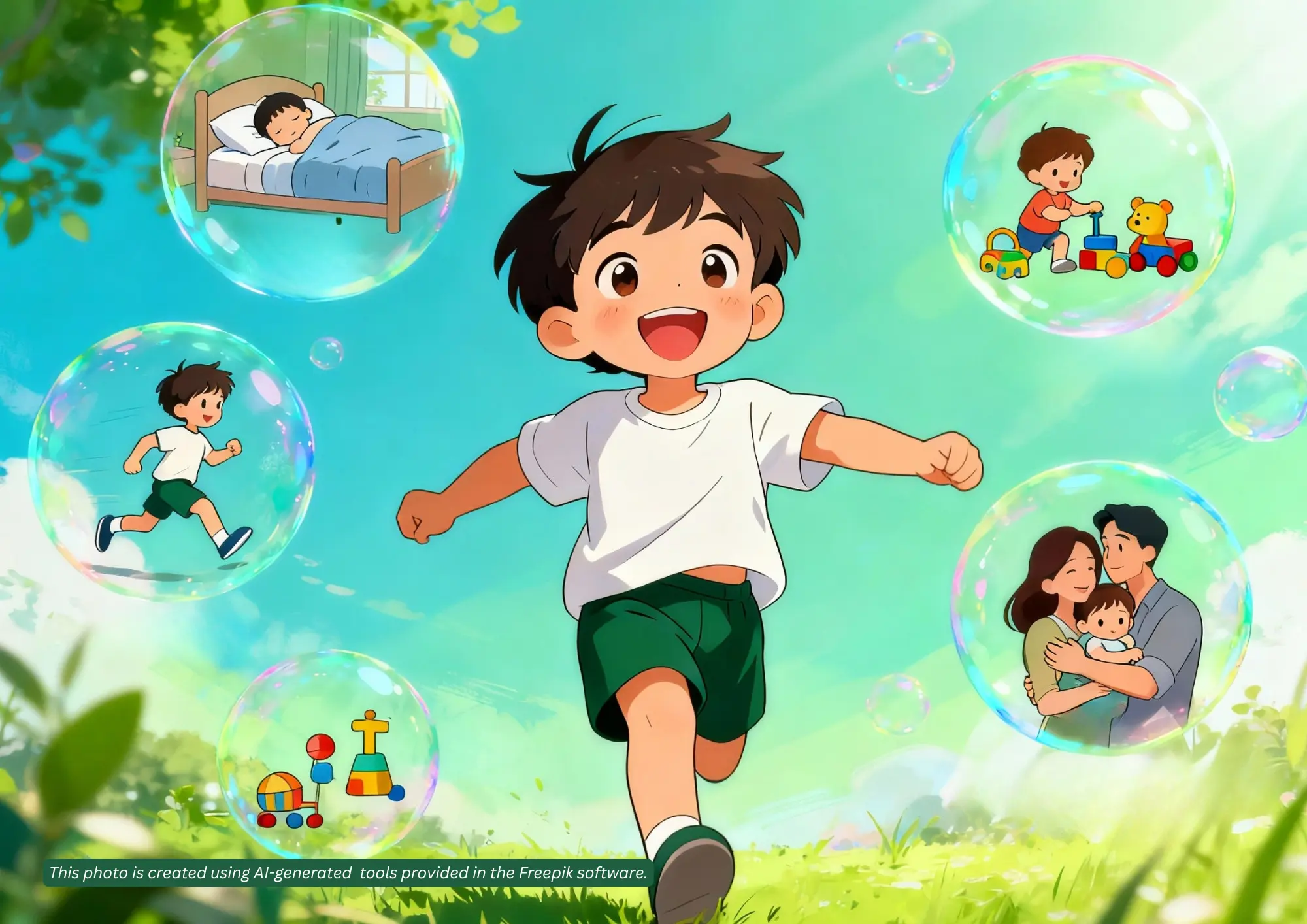
Be mindful of any changes in your child’s behaviour — even the small ones. These shifts may be part of normal development, or they could indicate underlying stress.
Picture your cheerful five-year-old, who used to bounce into preschool, now refusing breakfast, waking up from bad dreams, and clinging to you at drop-off. You brush it off as a phase—until one day, your child melts down because his or her socks feel “wrong”. What changed?
Why Understanding Childhood Stress Matters: The Science Behind the “Invisible Backpack”
Children do not always say, “I am stressed.” Instead, they carry worries like an invisible backpack—small at first, but growing heavier over time. Science tells us that ongoing stress in early childhood can shape emotional development, and even school success (Fleege et al., 1992). The key is spotting the quiet signs before the backpack gets too full.
Recognizing the Silent Signs
Young children (ages two to six years old) often show stress through behaviour because they are unable to put feelings into words. Look for:
- Withdrawal: Avoiding toys or activities they usually love
- Sleep changes: Restlessness, nightmares, or waking often
- Regression: Reverting to thumb-sucking, baby talk, or bedwetting
- Physical complaints: Frequent stomach aches or headaches (with no medical cause)
Understanding the Hidden Triggers
The causes of childhood stress often differ from adult stressors. Common triggers include:
At Home:
- Family tension: Arguments, divorce, or grief—even if adults try to hide it
- Big changes: A new sibling, moving homes, or blending families (even happy changes can feel unsettling)
- Transitions: Switching from playtime to bedtime, or leaving a fun activity
- Sensory overload: Loud noises, bright lights, or uncomfortable clothes
At School:
- Social struggles: Trouble making friends, feeling left out, or dealing with a bully
- Teacher dynamics: Anxiety over pleasing adults or adjusting to a new classroom
- Performance pressure: Worrying about schoolwork, even in early grades
The Lifelong Impact of Early Stress

Ongoing stress and anxiety can take a toll on a child — affecting not just their behaviour, but also their physical health and brain development in the long run.
When young children experience chronic stress (like ongoing anxiety at school or home disruptions), their developing stress response systems can become overloaded. Studies show this increases their risk for:
- Adult health issues (heart disease, autoimmune disorders)
- Mental health challenges (anxiety, depression)
- Learning difficulties (trouble focusing, memory problems)
(Gilgoff et al., 2020)
The Good News: Early Action Helps
The same research confirms that identifying stress early (through those subtle signs we discussed) and responding with support can:
- Reset stress responses in developing brains
- Prevent 60% or more of long-term effects (Gilgoff et al., 2020)
- Build lifelong resilience
How to Lighten Their Load

Addressing a child’s stress and anxiety early can lead to far better outcomes. There are simple and practical ways parents can help ease their child’s stress levels.
- Prioritize sleep: Children need 9-12 hours. Keep screens out of bedrooms.
- Move their bodies: At least 60 minutes of daily physical activity such as running, jumping or even walking, helps melt stress away.
- Talk it out: Help them verbalize worries with open-ended questions.
- Balance fun & downtime: Unstructured play and quiet time are both essential.
- Get outdoor: Nature time reduces anxiety and boosts mood.
- Teach problem-solving: Resist fixing every small issue for your child—let them build coping skills.
- Model resilience: Share how you handle stress in healthy ways.
- Combat negative self-talk: Gently challenge pessimistic thoughts with evidence of their strengths.
Try This Today:
- Observe: Spend 5 minutes watching your child play. Are they avoiding certain activities? Notice any patterns that might indicate their “backpack” is getting too heavy.
- Connect: Ask, “What was tricky today?” during bedtime snuggles, and prompt them to share deeper into their thoughts.
- Unplug: Swap evening screens for a family walk or quiet reading time.
By tuning into these signs and responding with support, you help your child not just cope—but thrive well, building resilience one lightened backpack at a time.
Fleege, P. O., Charlesworth, R., Burts, D. C., & Hart, C. H. (1992). Stress begins in kindergarten: A look at behavior during standardized testing. Journal of Research in Childhood Education, 7(1), 20-26.
Gilgoff, R., Singh, L., Koita, K., Gentile, B., & Marques, S. S. (2020). Adverse childhood experiences, outcomes, and interventions. Pediatric Clinics, 67(2), 259-273.
Written by Benjamin Looi Tink Wei
Registered Clinical Psychologist (MAHPC(CP)00473)
